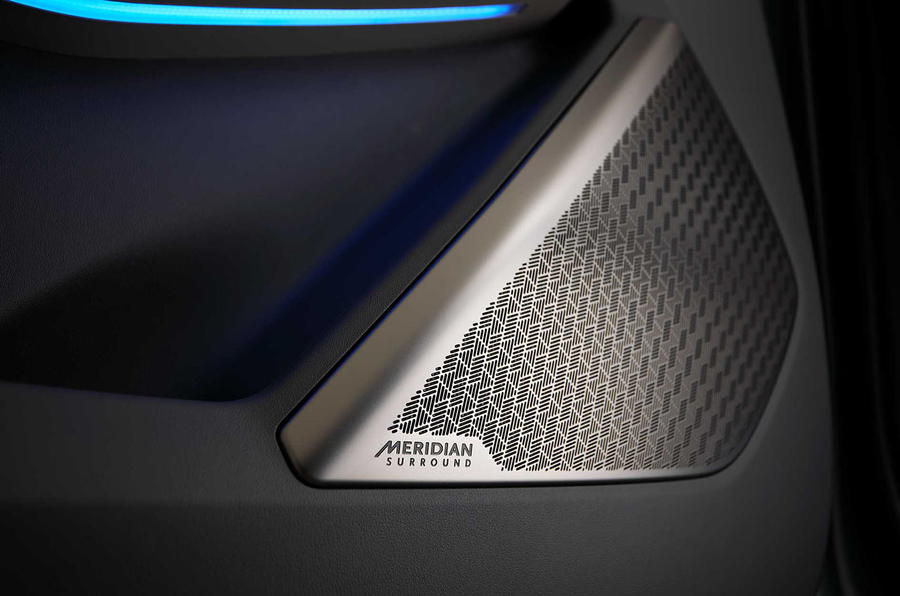Sound quality is something we may not notice until it’s not so good.
Audio system manufacturers, and especially those making high-end systems, have faced difficulties in achieving decent-quality sound inside cars for years.
In-car acoustics aren’t great, there are background noises too and the audio system designer has no control over the position, size and objects inside the space. It may seem as though a shift to electric drivetrains would make their lives easier but actually it doesn’t.
UK manufacturer Meridian Audio, which supplies the likes of Land Rover, Jaguar and Kia, has produced a digital processing suite called Intelli-Q, designed to deal with the completely different challenges an electric car poses compared with ICE.
According to Meridian’s engineers, one of the challenges in producing quality sound inside a car is less about volume and more about the characteristics and detail of what we hear.
The structure of the sound an engine produces is predictable and can be dealt with using noise cancellation technology. So even if it isn’t quietened down, what Meridian calls “the acoustic environment” can be managed to produce high-quality sound from the audio system.
The background noise an engine produces is also good at masking other background sounds such as rattles and noise from the road, transmission and wind.
The sounds produced by an EV are generally random and higher in frequency, making that acoustic environment difficult to manage using traditional active noise cancellation techniques. Intelli-Q is a suite of customised digital signal processing (DSP) technologies designed to tackle that.
By taking data from the car’s communications bus (its internal electronic communications network) in real time, the system can compensate for such factors as the number and position of open windows, the climate control settings and how many people are in the car.
Rather than simply increasing the volume to overwhelm background noise, the system can respond to the changing profile of the background noise, by increasing low- and mid-range audio sound to counter an increase in speed or rougher, noisier road surfaces.
Once the background noise is under control, the engineers can overlay quality audio to achieve the sound character the car maker wants.
The sound an EV makes does have some upsides, though. Because the background noise generally has a shorter wavelength than in ICE cars, the bass sound doesn’t have to be quite so big and the engineers can focus on the quality of the low frequencies.





Join the debate
Add your comment
Never any mention of the hard of hearing, the people who have hearing problems,has any brand thought how to help there?
As someone that is into audio, I fail to see how many of the things said in this article can be the case. BMW for example went to the extravagance of getting extraneous noises made to excite the driver, and the lack of lower frequency mechanical noises from ICE vehicles will directly translate to increased dynamic range. I understand that the frequencies from EVs may be more in the normal range of human hearing, but these higher frequencies and random noises[?] can be more easily dealt with using noise-cancelling/anti phase measures.
"The background noise an engine produces is also good at masking other background sounds such as rattles and noise from the road, transmission and wind."
Lol, so more noise to mask out the noise. No, thanks. Even cheap headphones have active noise cancelling for this sort of noise. Because it's better without it.
Agreed, the headline could be 'Acoustic Engineers prefer combustion cars to EVs as the (lack of) quality of the system can be masked by a noisy engine'.
The HK system in my i3 is the superb, super clear across all frequencies and the bass isnt over emphasised to over come the engine frequencies.